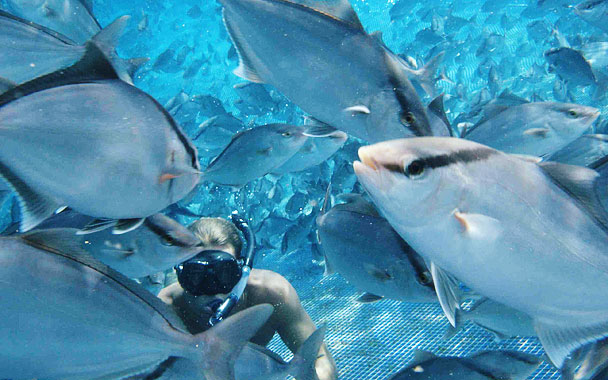They may be great at preventing innocent passengers from carrying water bottles through airline security checkpoints, but the bureaucrats at the Department of Homeland Security (DHS) are not up to the job of securing our borders from acts of agroterrorism, according to a chilling post by science writer Alla Katsnelson that went up on on The Scientist's web site earlier this week.
Katsnelson reports that in 2003 control of the Animal Health Inspection Service (APHIS), which is charged with keeping plant and livestock diseases from being introduced to the country (whether accidentally or intentionally as acts of terrorism) was shuffled from the United States Department of Agriculture (USDA) to the DHS, which in the words of one former USDA researcher, is a new agency that may not have a "clear understanding of agriculture."
It sure seems that way. Investigations by the Government Accountability Office in 2006 revealed a significant drop in border inspections since the DHS took over. Morale was dismal, and equipment was falling apart. Meanwhile, lack of coordination between the DHS and APHIS meant that much of the work that was being done was being duplicated.
Just a little something to ponder the next time some sullen agent tells you to remove all items from your pockets and place your shoes on the belt.
Not So Fast
Flush with $2.6 million in new investors' money, Kona Blue Water Farms applied this week for permits to double the number of its pens from four to eight and add 13 acres to the 90 acres it currently rents for its aquaculture operations in a conservation district near Keahole Point on Hawaii's Big Island.
The company, which raises a native fish called kahala under the trade name of Kona Kampachi, is a pioneer in efforts to farm fish in the open ocean, as opposed to the protected bays favored by traditional mariculture operations. Kona claims that its pens, submerged in 200-foot-deep water, have no significant environmental impact. The Bush administration is pushing hard for this type of aquaculture.
But at a hearing before Hawaii's Board of Land and Natural Resources, opponents to Kona's expansion claimed that there had been insufficient monitoring of such issues as pollution from uneaten feed and fish waste, changes in native sea life, introduction of disease and parasites, and the effects of escapes.
Hmmm. Come to think of it, the complaints against offshore aquaculture sound a lot like the same old complaints you hear about conventional fish farms.




 Pinterest
Pinterest


